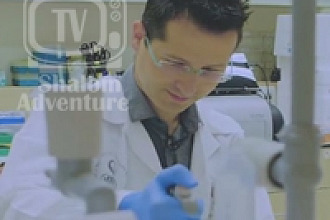“Our findings provide the basis for a personalized approach to the treatment of Ewing sarcoma,” postdoctoral fellow Swati Srivastava said in a press release regarding the study. “The fact that the study made use of drugs that have already been approved for other uses should facilitate the implementation of this approach.”
By inhibiting a particular hormone receptor and studying interactions between the ability of glucocorticoids to turn gene expression on and off that may lead to cancer formation, scientists believe they have found a way to slow or even halt the progression of the disease which often does metastasize to ultimately affect other parts of the body.
Ewing sarcoma is a rare pediatric disease, according to findings by the Jerusalem Post, affecting approximately 200 children and teenagers a year in the United States.

























